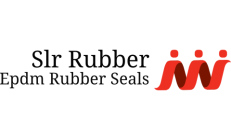Polyvinyl chloride (PVC) pipes are widely utilized in various industries and applications due to their versatility, durability, and cost-effectiveness.
Polyvinyl chloride (PVC) pipes are widely utilized in various industries and applications due to their versatility, durability, and cost-effectiveness. These pipes are composed of a synthetic plastic polymer known as PVC, a material that exhibits excellent chemical resistance, high strength, and a smooth interior surface. One crucial component that ensures the optimal performance and longevity of PVC pipes is the use of seals.
Seals play a vital role in PVC pipe systems by providing a secure and watertight connection between pipe joints. These seals are typically made from elastomeric materials, such as rubber or thermoplastic elastomers, which offer flexibility and resilience. The primary functions of PVC pipe seals include preventing leaks, resisting the ingress of external contaminants, and maintaining the structural integrity of the piping system.
The installation of PVC pipe seals is a meticulous process that involves ensuring proper alignment and a tight fit between adjoining pipes. The seals are designed to accommodate the expansion and contraction of the pipes, especially in response to temperature fluctuations. This flexibility is crucial in preventing the development of cracks or gaps that could compromise the efficiency of the piping system.
PVC pipe seals come in various designs to suit different applications. Common types include gaskets, o-rings, and compression seals. Gaskets are often used in flanged connections, creating a reliable seal between the flanges. O-rings, on the other hand, are circular seals placed within grooves to prevent leakage in both static and dynamic applications. Compression seals involve a mechanism that tightens around the pipes, ensuring a secure and leak-resistant connection.
In addition to their sealing function, PVC pipe seals contribute to the overall longevity of the piping system by protecting against external factors such as soil movement, water pressure, and chemical exposure. These seals are engineered to withstand harsh environmental conditions, making them suitable for applications ranging from residential plumbing to industrial processes.
Regular inspection and maintenance of PVC pipe seals are essential to ensure their continued effectiveness. This includes checking for signs of wear, damage, or deterioration and replacing seals as needed. Proper installation practices, adherence to industry standards, and the use of high-quality seals are key factors in maximizing the performance and service life of PVC pipe systems.
In conclusion, PVC pipe seals play a critical role in maintaining the integrity and functionality of PVC piping systems. Their ability to create reliable, watertight connections ensures the efficient transport of fluids while preventing leaks and minimizing the risk of system failure. With their durability and resistance to various environmental factors, PVC pipe seals contribute to the long-term success of a wide range of applications across different industries.

